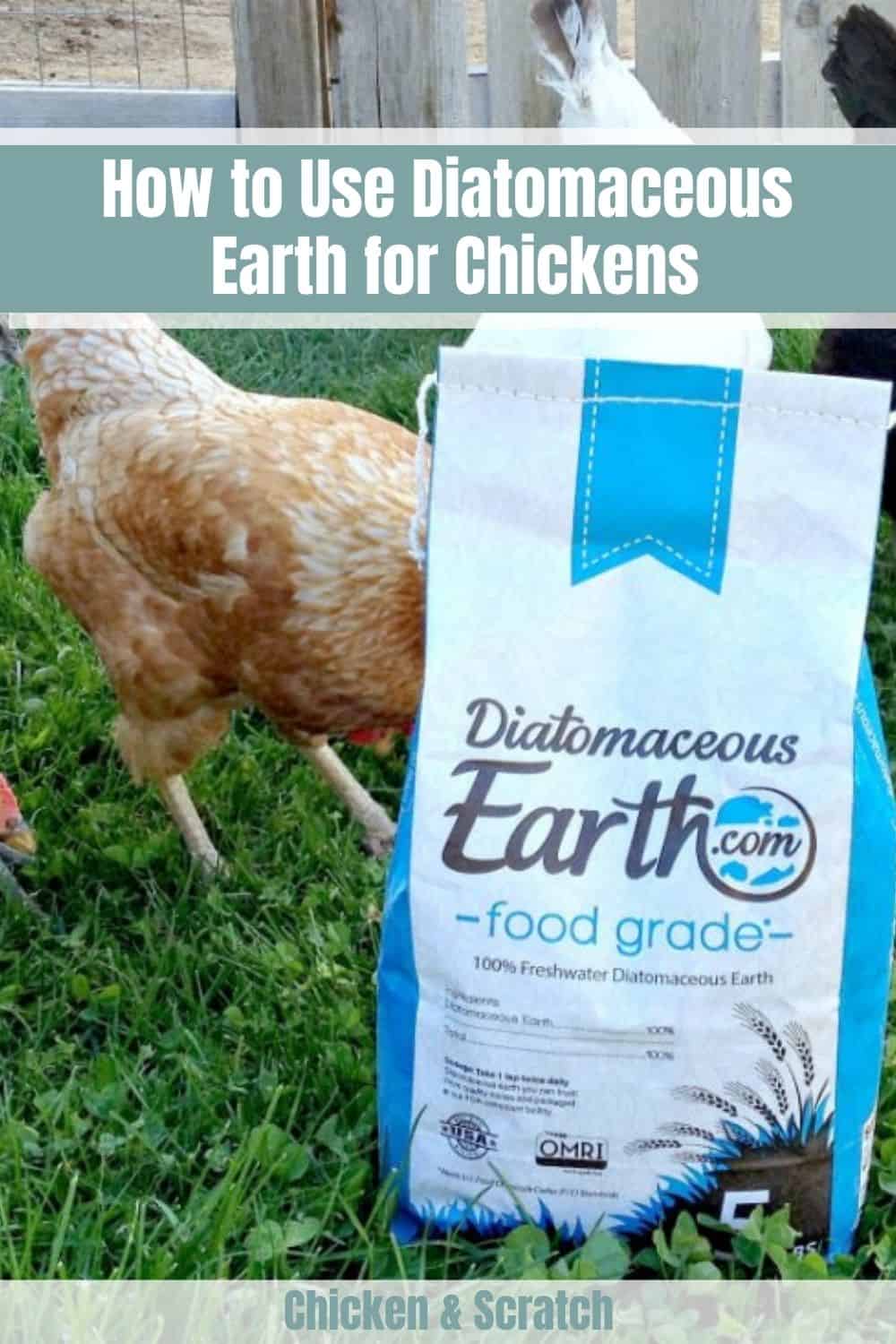Diatomaceous earth is a multipurpose product primarily used for our everyday lives, such as a pesticide, skin products, and a lot more. If you have had a backyard chicken for a while now, then diatomaceous earth is not something new. And if you are a newbie in poultry, then you might have asked, “Is diatomaceous earth safe for chickens?”. Experts will say yes and will explain how it is beneficial for your chickens.
This article will cover
- What is diatomaceous earth?
- Food grade vs. Non-food grade diatomaceous earth?
- Uses and Benefits of Diatomaceous Earth
- Safety concerns while using diatomaceous earth for chickens
- What are the disadvantages of Diatomaceous Earth to chickens?
- Where to buy Diatomaceous Earth?
What is diatomaceous earth?
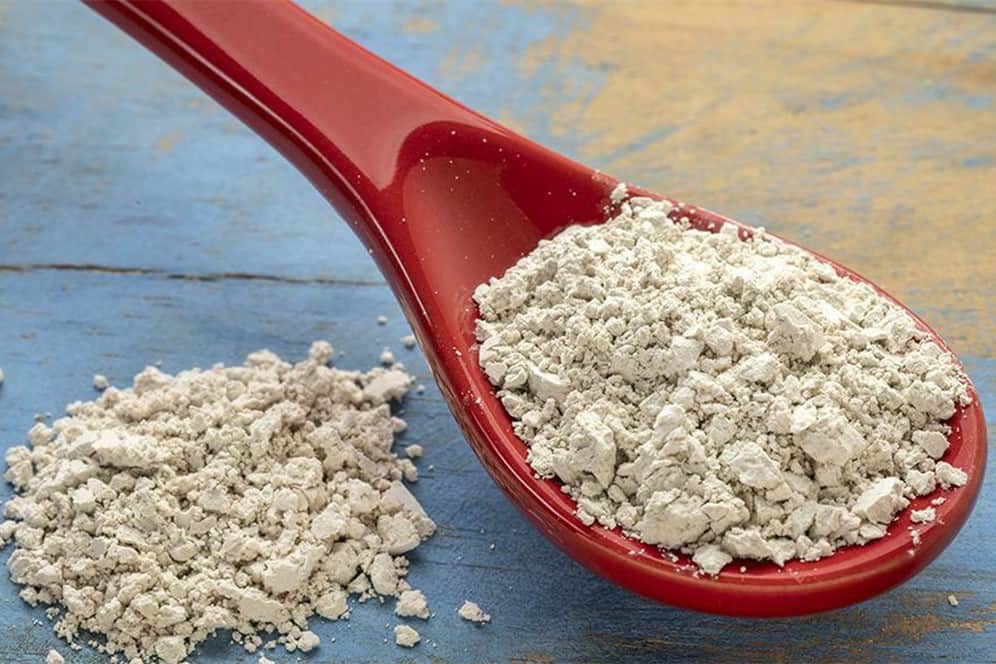
Diatomaceous earth is well-known among most chicken owners. It is a white porous powder composed of the fossilized remnants of tiny aquatic organisms, known as diatoms. The skeletons of diatoms are made up of a natural substance called silica, which is the significant component of diatomic.
There are various types of diatomaceous earth, food-grade DE and pool-grade DE are commonly used.
You should provide your chickens with food grade diatomaceous earth, it is composed of practically pure amorphous silica, making it safe for humans and animals. On the other hand, pool-grade DE is composed chiefly of crystalline silica that can lead to silicosis.
If you are curious about what diatomaceous earth looks like under a microscope, you will find that its physical characteristics include random jagged edges of silica, which make it abrasive and enable it to damage insects and pests.
Watch the video to see what diatomaceous earth looks like under a microscope visually
Food grade vs. Non-food grade diatomaceous earth?
There are various varieties of diatomaceous earth, but if we talk about its safety and benefits for chickens, we will tackle the food grade and the non-food-grade DE or what is known to be the pool grade DE.
Food grade DE is composed of amorphous silica, which does not really have significant health concerns once inhaled and is considered non-toxic. Most Food Chemical Codex Grade diatomaceous earth products comprise below 1% of crystalline silica. A food-grade DE is considered to be healthy and safe to use for both animals and humans.
On the other hand, a non-food-grade DE is mainly used for filtration and is not meant to be used for all living things as it may cause harm.
When DE is superheated, it then forms crystalline silica, making up a pool-grade DE—making it not safe for anyone, whether animals or humans, to inhale it. Regular inhalation of pool-grade DE might cause you to be at a higher risk for lung cancer. Regardless of whether it is food-grade or pool-grade, it is still recommended that you take precautions.
Uses and Benefits of Diatomaceous Earth
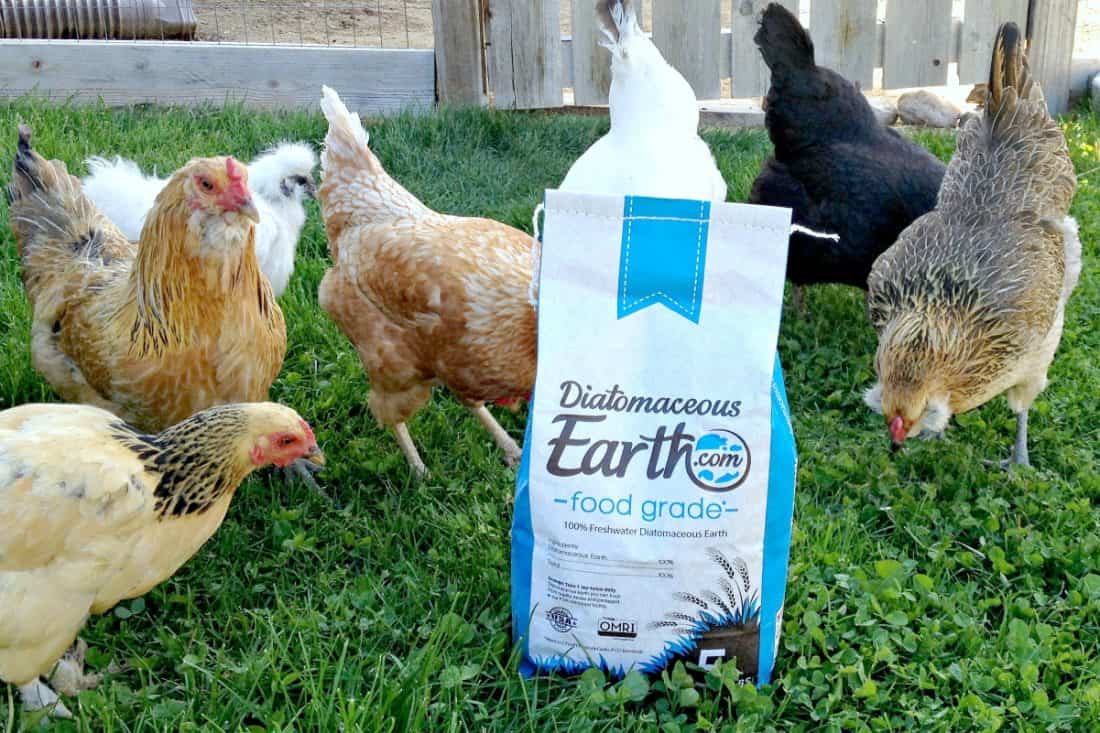
Most products that we encounter daily have a diatomaceous earth content due to their rough and absorbent nature. It is a versatile product which you can use in almost everything you can think of.
Mice and Lice Repellent
One of the best and recommended ways to take care of your chickens is by providing them with a dust bath filled with diatomaceous earth. It is a natural insect repellent that defeats mites and lice that plague your chickens.
These insects and parasites have to be in contact with the DE as it makes them dry out all because of the abrasive and rough edges of the silicon particles of the DE. DE attacks the respiratory system of the pests by blocking their airways. You can sprinkle DE onto the dust bath of your chickens or the bedding of each coop.
Natural Pesticide
You may have encountered a couple of chicken owners who can attest that being an organic pesticide is one benefit and use of the diatomaceous earth. All you need to do is sprinkle it on the floor, walls, or all over each coop to keep out any pests from lingering around your poultry. DE is only effective when it comes in contact with pests to slay them.
DE controls internal parasites and is also suitable for ants, cockroaches, scorpions, termites, flies, and spider killers. It is an effective and organic alternative to any chemical pesticide.
Natural Dewormer
DE is considered a natural dewormer for your chickens and can be added to their diet to prevent internal worms and parasites from growing and multiplying. DE works as a natural dewormer by allowing the immune process and digestive system to eradicate internal parasites.
It may be a recommended organic dewormer as it is one of the most natural and organic ways to get rid of internal pests. However, it is not as efficient as the chemical ones.
Hence, make sure to constantly use it for at least two months with a 2% ratio to add to their diet. Feeding DE for a long while to your chickens covers the life cycle of the internal parasites and kills away all their hatching eggs.
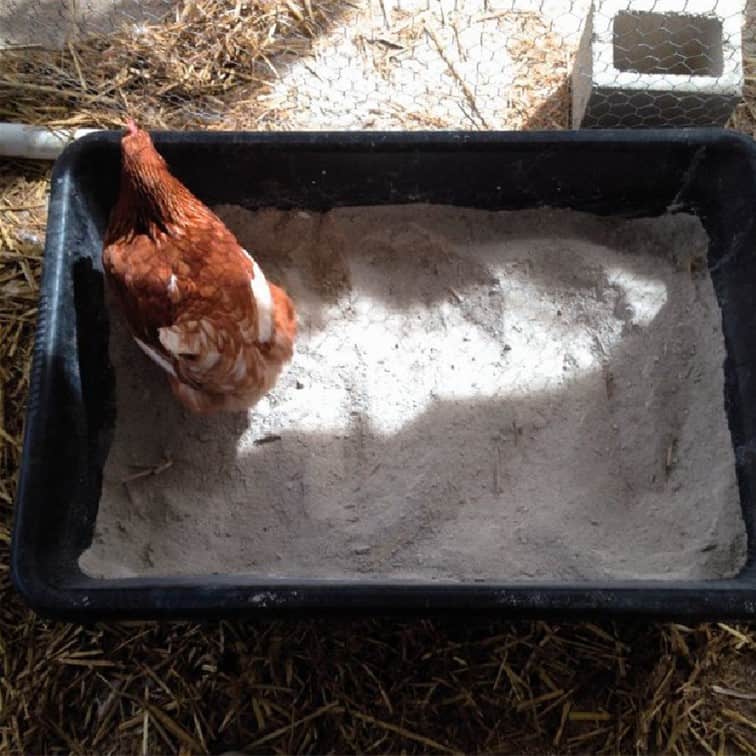
Feed
The significant component of DE is silica which provides numerous health benefits to your chickens because of its mineral components.
It is also proven that chickens that consume DE can lay more giant eggs with thicker eggshells and bigger yolks. Chickens that ingest food grade diatomaceous food do not even experience any period of egg withdrawal.
In addition to this, they tend to be heavier and have fewer worms. Moreover, it also makes their coats and feathers more beautiful and shinier than ever.
Diatomaceous Earth is an excellent addition to the daily diet of your chicken regardless of their age. However, you have to ensure that the amount of DE you put in their meals is about 2% and does not have to be part of their staple diet.
Aromatic
Diatomaceous earth can also eradicate the stinky smell that comes from your chicken coop by absorbing the moisture. Considering that pungent odors that build up in the coop are inevitable, you can make use of DE as part of your cleaning materials that you can use regularly. It somehow helps in combatting the unpleasant smell circulating in the coop.
Safety concerns while using diatomaceous earth for chickens
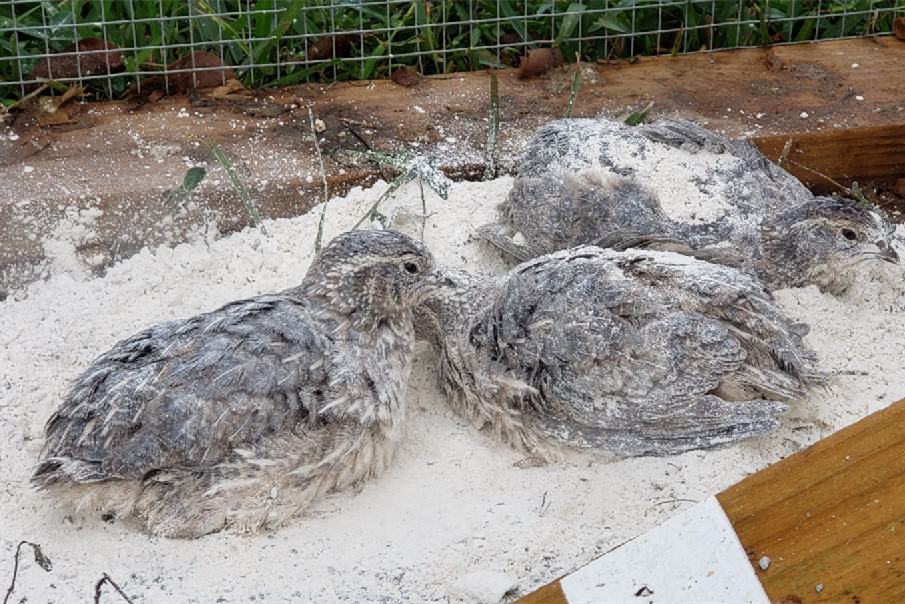
Although food-grade diatomaceous earth is considered non-toxic to humans and animals, there should still be health precautions done by you. If inhaled in large amounts and consistently, it might pose respiratory health issues for both humans and chickens, though the effects might not be as pronounced in chickens as in humans.
Ensure you are wearing proper safety gear when using DE to avoid potential health issues. This includes goggles or other eye protection to prevent it from getting into your eyes, a mask to avoid inhaling large amounts of DE, and gloves, as it can also dry out your skin.
What are the disadvantages of Diatomaceous Earth to chickens?
Although we have established the benefits of DE, it is not exempted from having disadvantages that are listed below:
- Unlike chemical pesticides that react promptly once applied, diatomaceous earth needs a little time to work effectively. It usually takes hours and days to work entirely.
- Since we have talked about its effect when taken or inhaled in large amounts, it is best used and works best when utilized in small quantities frequently.
- Considering the fact that it does not take effect promptly, it cannot combat the parasite infestation that causes fatality to your flock.
- Although it can be used as a natural dewormer and is considered non-toxic to chickens when ingested, it is still not as efficient as the chemical ones.
- Taking into account that it is an excellent natural pesticide, you may unintentionally slay insects that are mostly beneficial to our environment, such as bees. Hence, it is essential to be knowledgeable on how to use it.
Where to buy Diatomaceous Earth?
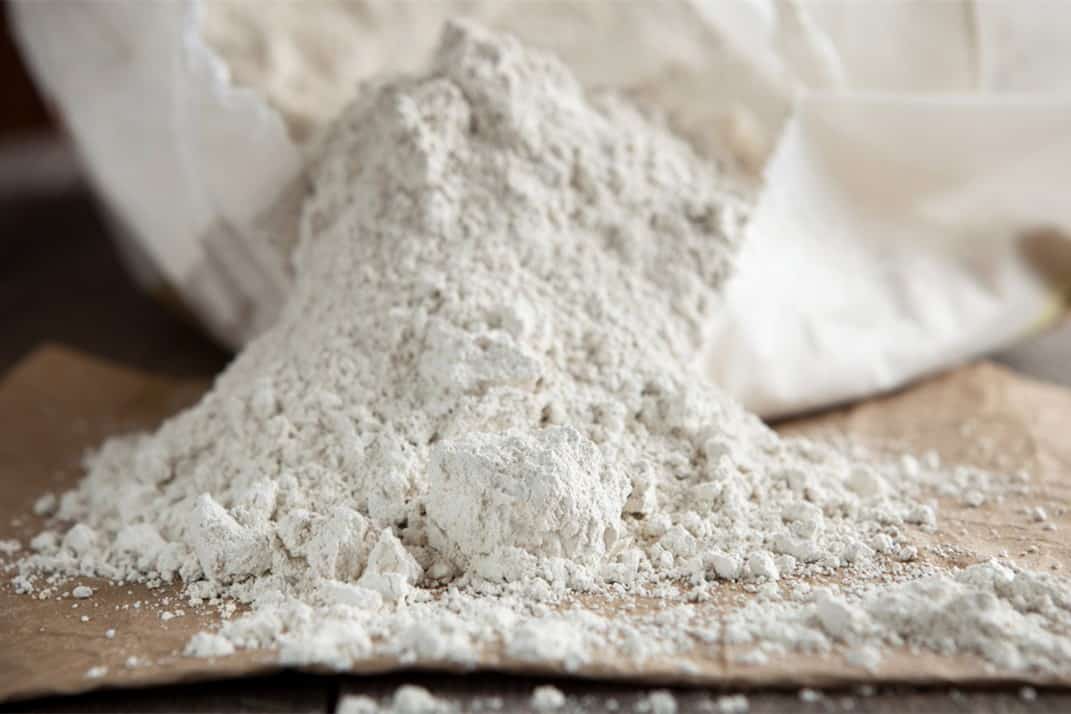
There are various physical stores and online stores where you can purchase diatomaceous earth. For physical stores, it is primarily found in hardware, garden, or local feed stores.
When buying diatomaceous earth, make sure that they are food grade and contain no more than 2% of crystalline silica. The lower the content of crystalline silica, the better, with an ideal amount being around 1%. It should not contain any fillers such as sand and chalk and must be locally mined as much as possible.
Conclusion
We have now answered the question “Is diatomaceous earth safe for chickens?” that may have been bothering you. Yes, diatomaceous earth is undoubtedly safe for your chickens. It will help your chickens live a healthy life. Moreover, you will not have to worry that much as it will also be a pest-free coop.
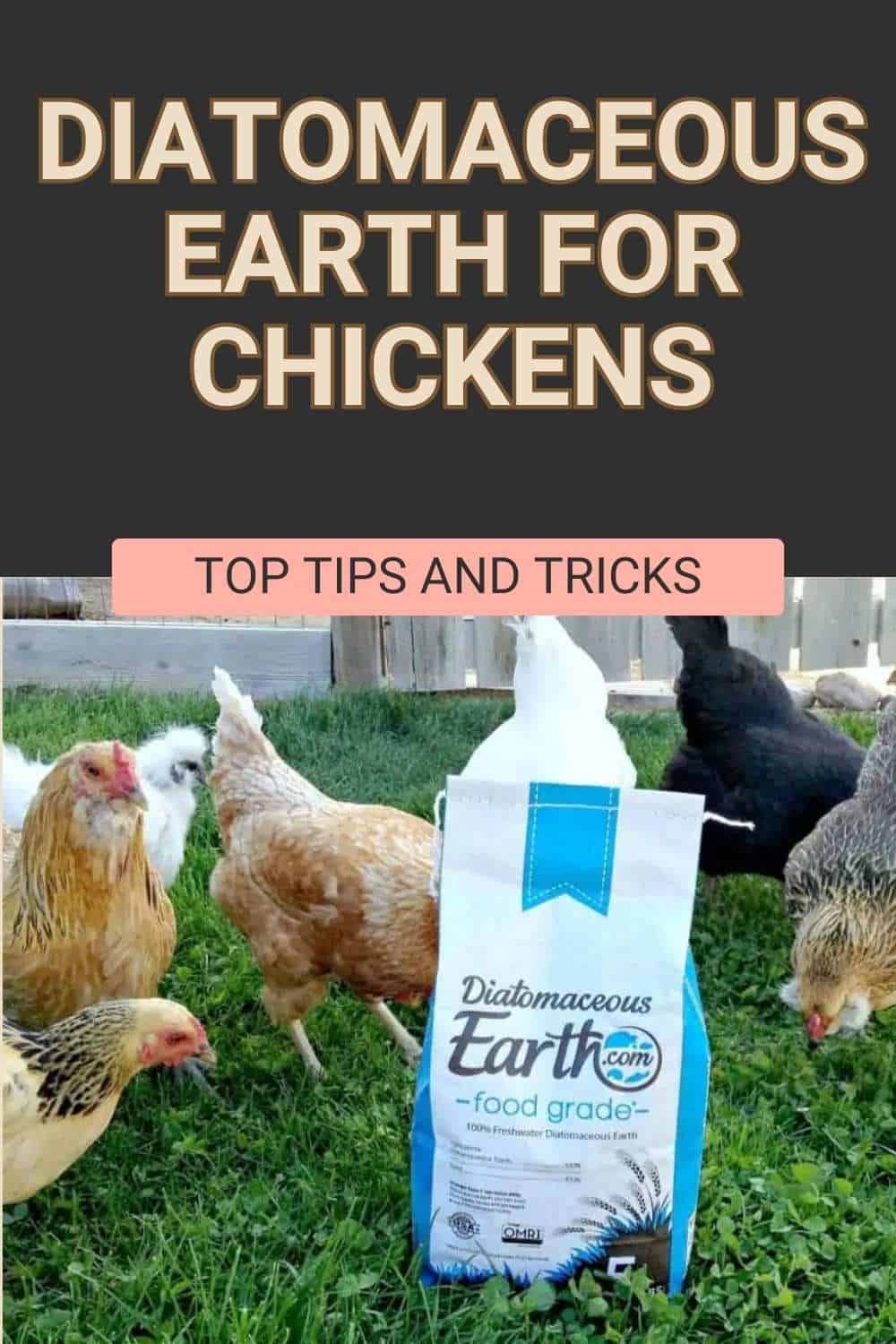

Joseph Hudson has been raising chickens for over 15 years. In 2018, he completed the Agriculture & Natural Resources program at Mt. San Antonio College. He currently raises over 1400 chickens on his 7.5-hectare farm. He keeps sharing his experience on raising healthy and happy chickens on Chicken Scratch The Foundry.
